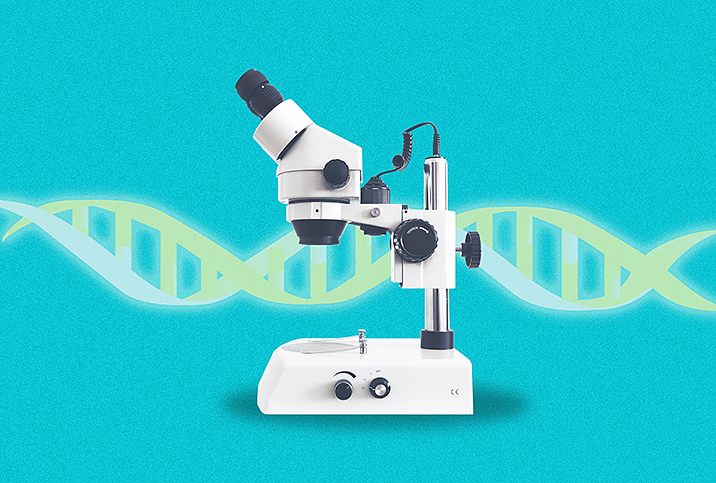What Genetic Screening and Testing Can (and Can’t) Tell You Before and During Pregnancy

While making the decision to become pregnant can be exciting, it can also be a source of anxiety. You may worry whether you or a partner carry genetic predispositions that could affect your baby. If already pregnant, you may be concerned your baby has a health issue.
The good news is the chance of your newborn exhibiting a genetic disorder is limited. Most babies are born healthy, and only a small percentage are born with a birth defect. But if you need more assurance or know you are a carrier for a genetic disorder, read on to learn about the most common types of genetic screening and genetic testing.
Genetic screening vs. genetic testing
Although similar in their ability to identify genetic risks for a pregnancy, genetic screening and genetic testing have distinct differences. Genetic screening relies on ultrasounds, demographic info and blood work to determine the genetic risks associated with a pregnancy. The benefit of genetic screening is it's non-invasive and can be used before the pregnancy. The noninvasive nature means it can also be used during pregnancy with minimal risk.
There are limits to genetic screening, however. While it can determine the chances you will pass a genetic predisposition on to your baby, it cannot pre-diagnose a genetic disorder. In other words, genetic screening cannot give you a yes or no answer as to whether your child will have a genetic condition. It can only state the likelihood your baby will inherit certain genetic disorders.
If you are looking for a concrete answer, you can utilize genetic testing of the fetus. Keep in mind that unlike genetic screening, genetic testing can only be performed during specific trimesters of a pregnancy because samples from the placenta and/or amniotic fluids are needed. Due to the invasiveness of the process, genetic testing can pose a risk to the pregnancy.
Gretchen Rossi, 'Real Housewives of Orange County' alum, champions the use of genetic testing during the IVF process—and credits it for her successful pregnancy. Watch the full interview here.
Carrier screening
One type of genetic screening is carrier screening. Carrier screening involves the genetic testing of the prospective parents. Carrier screening determines whether a person carries alleles associated with certain genetic disorders.
The type of carrier screening your physician decides to use will often depend on your ethnicity. This is because certain ethnicities have an increased likelihood of certain genetic disorders. For example, if you and/or your partner are Black, a carrier screening would evaluate whether either of you has alleles for sickle cell anemia because Black people are more likely to be carriers of this disease. Knowing your genetic status via carrier screening is beneficial for planning a prospective pregnancy. If your genetic screening shows a risk for a specific genetic disorder, you can make decisions before pregnancy to accommodate your prospective baby's needs.
Amniocentesis diagnostic test
Amniocentesis is a type of genetic testing that involves the sampling of embryonic fluid. It is performed in the second trimester of pregnancy. Amniocentesis is most commonly used to determine if a baby will have down syndrome.
Although the test offers a concrete determination of a baby's inheritance of certain genetic disorders, there are some risks associated with the test. Amniocentesis can induce a miscarriage. Therefore, the diagnostic test should be undertaken with caution.
Because of the test's risks, a good provider will only recommend the test under specific conditions. These include high-risk pregnancies associated with advanced maternal age and/or a family history of severe genetic disorders.
Know the limits
Genetic screening and genetic testing can help you gauge the risks associated with a pregnancy. However, the use of a genetic screening or genetic test does not guarantee that all potential genetic disorders associated with a pregnancy will be known before a baby's birth. Genetic disorders are often the result of random genetic combinations, and your baby could still exhibit a genetic disorder post-birth.

















